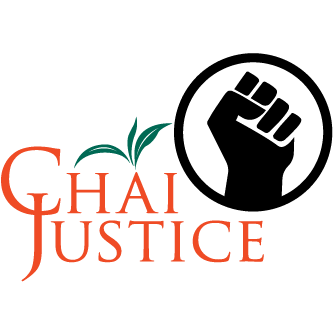An approximate 400,000 workers live and work in the tea plantations. The tea worker communities are one of the most vulnerable people of Bangladesh. Working conditions of tea workers are abysmal, characterized by long hours, low pay, inadequate living accommodations, and very limited education and healthcare facilities. For a comprehensive book on the working conditions of tea worker, see THE STORY OF TEA WORKERS IN BANGLADESH (Philip Gain, ed., 2009). Workers earn on average a $1 a day and have low rates of literacy. Under the Bangladesh Labor Law Act of 2000, tea plantation owners are required to provide housing, safe water, and sanitation, medical and education facilities. Tea plantations are also required to make daily necessities of life accessible to workers such as access to goods sold in the market. However, these are often not provided or if they are, the quality of these services is poor.
An International Labor Organization (ILO) report which focused on almost 300 workers across ten tea estates, found that only 35% of respondents were literate; 43.4% said they had attended some level of primary school, but had forgotten how to read and write. A 2006 study found that a significant majority of children between the ages of 6-12 do not attend school. Child labor is prevalent in the tea garden industry even though it is prohibited under labor laws. Without education and skills, few alternative employment opportunities are available to them and they often can only find jobs in the tea plantation.
Tea workers work and live inside tea plantation areas and are mostly isolated from other workers and people living in areas surrounding the plantation. They have no permanent addresses; a vast majority if not all of the land they use is leased to tea plantation owners by the Bangladesh government. If they cease working for the tea planation, they lose their residence. Through a complex system of leasing and subleasing of land from tea plantation owners, workers cultivate the land to supplement their income. The food cultivated from the land provides both household sources of food as well as time opportunities to sell the produce in local markets.
At present, a majority of the tea workers are women. The tea workers union reports that a little over half (52%) of all the tea workers are women. However, a significantly higher percentage of workers who pluck tea leaves are women. Historically, patriarchy contributed to the gendered division of labor meaning that women were given labor intensive work of plucking tea whereas men were places on jobs involving machines. These gender divisions remain today maintaining low wages of female tea workers. Women still perform the strenuous labor of picking tea leaves, standing all day on hillocks in the heat with minimal protection. A woman tea worker’s labor does not end at the hilltop picking leaves. She often has the burden of unpaid work. It is not uncommon for many tea workers to work while pregnant. Tea workers are entitled to eight weeks of maternity leave, but they usually take the leave after childbirth which means their working conditions impact their pregnancy. It is sadly therefore not surprising that maternal and child mortality rate is higher in the tea gardens in comparison to the rest of the country where it has significantly declined in the recent past.
Social identities such as race and ethnicity are also important to understand how tea workers are kept in persistent generational inequality. During British colonialism, workers were brought to present day Bangladesh from different parts of then undivided South Asian subcontinent to work under the plantation economic structure as indentured laborers. In Bangladesh, it is estimated that tea workers represent almost 92 different ethnic minorities. Over 90% of them are from various ethnic minorities and some of indigenous origin – Bhils, Gonds, Santals, Mundas and Oraons. A majority of the workers are of the Hindu faith, most likely dalits, and some are Christian, Muslim and follow other ancient religions. Existing bias against religious minorities and indigenous communities in Bangladesh also allow for tolerance of the deep inequality in broader society. Even after 150 years of stay in what is now Bangladesh, tea workers are still considered as foreigners.
The present-day working conditions of tea workers were created by an indentured system of labor under colonialism. Indentured servitude was enforced by law and physical force. These legal and social structures from colonialism and perpetuated today kept tea workers isolated on tea plantations from broader Bangladeshi society. In sum, an invisible chain keeps workers tied to the tea plantation. Further, social and economic exclusion, dispossession, and the treatment they get from their management and larger Bangladeshi society keep them as captive workers.
